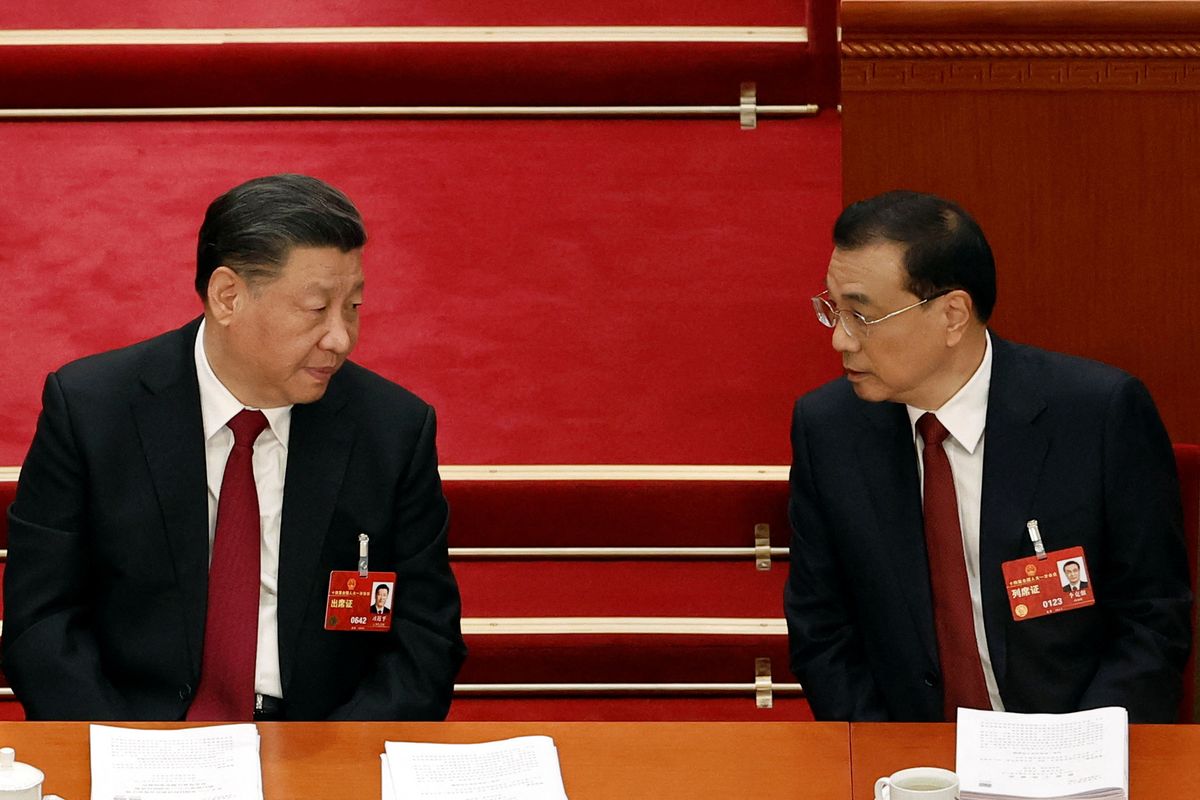At this year’s NPC, China sets its economic growth target
Last year, China’s economic growth goal was around 5.5%.

A few minutes every morning is all you need.
Stay up to date on the world's Headlines and Human Stories. It's fun, it's factual, it's fluff-free.
The backstory: Every year, there’s a big summit in Beijing called the National People’s Congress (NPC). At this event, around 3,000 delegates meet from all over China to go over what happened the past year, and they set the agenda for upcoming legislation. This includes looking into the national economy and seeing where it can go.
More recently: Last year, China’s economic growth goal was around 5.5%. This target was set before the new omicron COVID outbreak hit China and while the zero-COVID policy was still in effect. So, China didn’t hit that target for a few different reasons, like widespread lockdowns. Energy issues this past summer affected manufacturing, too. With that, the economy grew just 3%.
Since the global financial crisis back in 2008, China has seen lower and lower economic returns on its public spending. But it also continues to push for infrastructure spending, especially in less populated areas. Last month, the International Monetary Fund lowered its China growth forecasts for the next four years, saying China should move from pushing public spending to pushing for consumer spending. But, the IMF did lift the expected growth rate from its October estimate of 4.4% to 5.2% in February following the end of its zero-COVID stance.
The development: The 2023 NPC began on March 5. China is targeting economic growth of about 5% for 2023, according to Premier Li Keqiang at the opening session on Sunday. And this goal could be realized, as economic activity in China is bouncing back quickly. There will still have to be significant public borrowing and spending on things like infrastructure, though. The new national budget was also released Sunday, and it calls for 3.8 trillion yuan (US$550 billion) of special bonds to be given by government agencies, and a lot of it is going to infrastructure. As it hopes for a more active economy, China is also raising its military spending by 7.2%.
Key comments:
"This year, it is essential to prioritize economic stability and pursue progress while ensuring stability. Policies should be kept consistent and targeted, and they should be carried out in a more coordinated way to create synergy for high-quality development," Premier Li Keqiang said while addressing the NPC.
“This growth target, while modest from the perspective of recent decades but moderately ambitious relative to last year, indicates the return of growth as the lodestar for economic and financial policies,” said Eswar Prasad, a Cornell University economist.




Comments ()